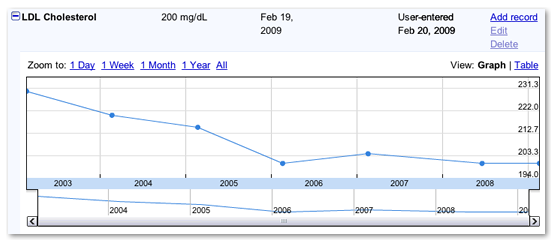After months of rumors, Google Health finally launched last May, promising to store our medical records in a secure way that is more accessible, easier to understand, and useful than traditional paper records. Since then we haven’t heard too much about the service, which isn’t particularly surprising given the sensitive nature of the information involved (this isn’t a space where Google is going to take new feature additions lightly). Today, Google has announced that it has launched a significant new feature, giving users the ability to share their medical records with designated family or close friends.
The general idea behind the feature is that oftentimes during emergencies family members may not know the details of your medical history, like medical allergies. Such information can be lifesaving, but sharing extremely personal medical information is not something that should be taken lightly. Google is taking lengthy measures to ensure the security of the data, associating invite links to specific Email addresses and allowing users to track who has viewed their records. All shared records are also read-only.
One security measure that I don’t understand is the 30 day expiration Google Health is placing on each Shared link. Unless users resend their link every month, it sounds like this feature would be effectively useless in the event of an emergency. I’d prefer a system that allowed me grant permanent access to a close family member, which I could revoke at any time. Update: A commenter below points out that this expiration may only apply to the link itself, and that the sharing relationship remains in place indefinitely provided the link is used within 30 days. Google has confirmed that this is the case.
For those users who’d prefer to go the low-tech route, the site is also launching a new feature that makes it easy to print out wallet-sized snapshots of your medical profile, which you can distribute to close family or perhaps just keep in your own wallet. The site is also launching a new graphing feature, allowing users to visualize the progress of health-related metrics like their blood pressure or cholesterol.

